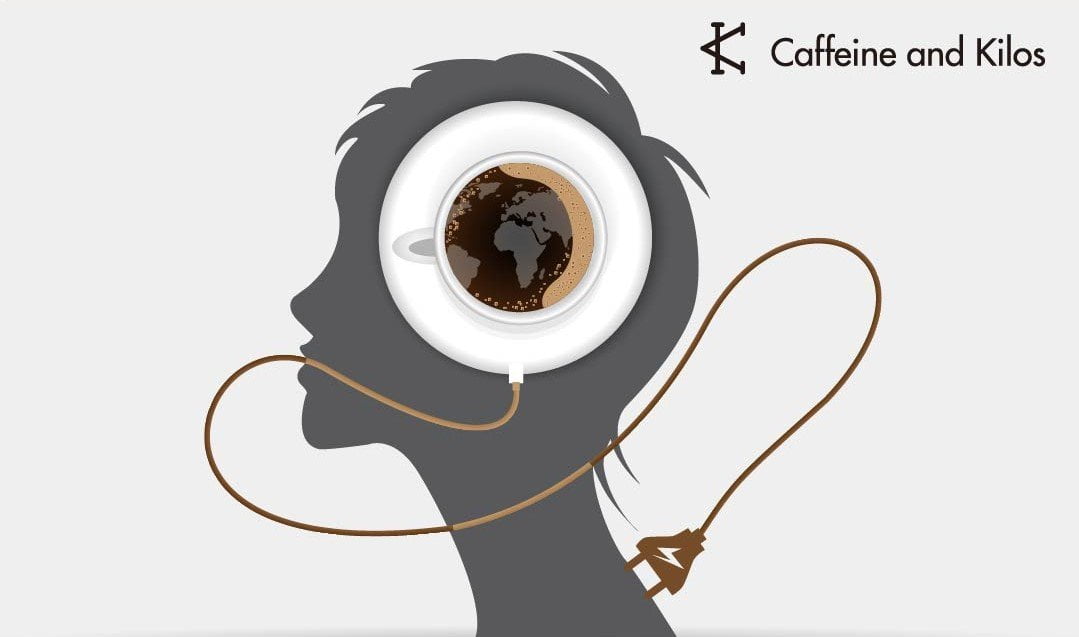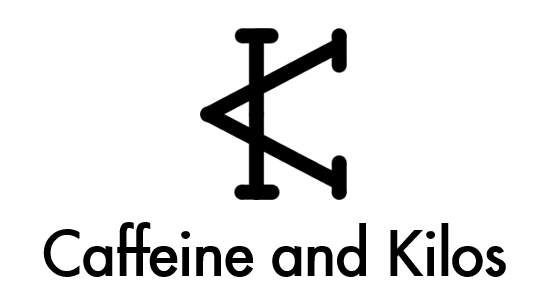
Science Has Proven Benefits of Coffee
Share
Something as delicious as coffee providing us with the energy we need to crush our day has to come with a catch. We wouldn’t blame you if you were to scratch your head and ask, “Is coffee good for you?” When it comes to health and fitness, you should approach all dietary decisions with a touch of skepticism. However, we can assure you that there are many benefits of coffee. Some of these coffee health perks have to do with the actual bean, while others are much in thanks to the health benefits of caffeine. Either way, grab yourself a cup of joe as we explain why coffee is good for you with some science-based coffee nutrition facts.
What Does Coffee Do for Your Body?
There’s a reason why coffee sales have hit $20 billion globally. There are many health benefits of coffee that people enjoy for a variety of reasons. The most common is the stimulant that turned us onto coffee in the first place--caffeine. Caffeine mimics a protein that makes us tired, known as adenosine.
Adenosine is a protein that causes reactions with our receptors. These interactions tend to make us slow down. As a result, we begin to feel a bit groggy.
This is one of the biggest reasons as to why is coffee good for you. Caffeine is a natural way to block adenosine from binding to receptors. After drinking a cup of joe, we will remain productive.
Another one of the most pivotal health benefits of caffeine is that this molecule increases the production of epinephrine in our system. Epinephrine is adrenaline, which is that burst of energy we receive during intense moments. It’s that powerful push that gets us across the finish line in a triathlon or that extra rep in the workroom. That’s why one study suggested caffeine can improve performance by up to 12% [1].
As great as increased alertness and performance are, there are even more health benefits of coffee than caffeine. Many of the positive qualities attributed to coffee health derive from the nutrients in coffee beans.
Coffee Nutrition for a Balanced Diet
There are many essential vitamins and minerals found in coffee beans that can improve our daily functioning. For instance, one cup of eight-ounce coffee contains a litany of B-Vitamins.
Nutritional Value in Coffee: B-Vitamins
B-Vitamins are essential for proper cell functioning. These minerals play a significant role in repairing skin cells from a laceration, creating energy from food sources, and synthesizing DNA cells. That’s why one of the many health benefits of coffee includes improved cognitive function [2].
Nutritional Value of Coffee: Potassium
There is also a considerable amount of potassium represented in coffee nutrition facts. Potassium plays an essential role in muscle function. Not only is this aspect important for those who follow a coffee and weightlifting regimen, but it’s vital for cardiovascular health [3]. After all, the heart is the most important muscle in our body.
Antioxidant Coffee Health Benefits for Vital Organs
Your heart isn’t the only one feeling the love from coffee health. Other vital organs reap the health benefits of coffee. That’s why drinking coffee can assist you in fostering better general health.
Coffee and Liver Health
Following a coffee liver health protocol can help prevent scar tissue from piling up. Keeping this organ in optimal condition is crucial, considering the liver is our system’s personal toxin filter. Our liver fights off potential threats in the atmosphere, the foods we eat, and alcohol we consume. It’s best we keep ourselves on this organ’s good side.
Research shows that health benefits of coffee include antioxidants that prevent cirrhosis. Cirrhosis is caused by oxidative stress of liver cells. Thankfully, antioxidants help rejuvenate cells that have been destroyed, while clearing out the dead ones that may cause buildups. One study found that drinking four cups of coffee per day can decrease the risk of developing this liver disorder by 80% [4]!
Coffee and Kidney Health
While the liver and heart reap the benefits of the nutritional value of coffee, the kidneys also get a reprieve. One of the benefits of caffeine is that it can help fight off the development of nephrolithiasis. A study on this matter found that those who drank coffee had a 26% less chance of passing kidney stones [5].
Is Coffee Good for You If You’re Trying to Lose Weight?
Vitamins and minerals aside, you may find yourself wondering, “Is black coffee healthy for calorie-counters?” It sure is, with a heavy emphasis on the “black” part.
Just one cup of black coffee contains a mere two calories. Be sure to stay away from the unhealthy creamers and artificial sweeteners. These additives can downgrade the benefits of coffee.
Black Coffee and Intermittent Fasting
Black coffee is a staple for people who follow intermittent fasting. That’s because black coffee helps stimulate adipose tissue [6]. Adipose tissue is the sticky white fats that surround our gut lining.
As the benefits of caffeine activate the white tissue, it turns beige. This change in hue makes the consistency less sticky. Therefore, it’s easier for your body to draw on the brown tissue. Known as fat-browning, this process sets off a domino effect for weight loss.
When the body uses beige tissue for energy, it removes the carbohydrates from the gut lining. Extracting these fats causes the brown tissue to stimulate surrounding adipose tissue. It’s like the claw pulling up the teddy bear in the vending machine. All of the other stuffed animals gets shuffled about, as well. Therefore, the nutritional value of coffee facilitates an autonomous fat-browning system that helps you shed weight.
Caffeine and Metabolism
Many people accredit their lean figure to a “fast metabolism.” However, not many know what it means. Our metabolism plays a role in many critical functions.
We can thank our metabolic processes for:
- Converting Food Particles into Glucose for Energy
- Converting Amino Acids into Building Blocks for Proteins
- Eliminating Waste
Obviously, if you were metabolism weren’t functioning correctly, then these functions wouldn’t be performed adequately. As a result, you can end up with excess weight around the waistline.
Metabolic Syndrome, Heart Disease and Diabetes
There are several conditions associated with metabolic syndrome. Doctors diagnose this condition by measuring the severity of these conditions and how they may impede on your cardiovascular health. That’s why some of the conditions associated with metabolic syndrome include hypertension, atherosclerosis, and colon cell dysfunction.
One of the most common conditions associated with metabolic syndrome is type 2 diabetes. The reason for this is that a common side effect of having metabolic syndrome is insulin resistance.
A meta-analysis on the health benefits of coffee found that those who have high consumption rates are 9% less likely to develop type 2 diabetes. Furthermore, the researchers project that by drinking up to six cups of coffee every day will decrease the likelihood of being diagnosed with cardiovascular disease by 19% [7].
Health Benefits of Coffee for the Mind
We need our brains for everything. It pushes us through our workout, is our greatest asset for success at work, and helps us make decisions that affect our quality of life. It’s of the utmost importance that we protect our brain health at all costs.
Thankfully, everyone’s favorite beverage can help. That’s why so many people Join the Coffee Club. You have your brain booster delivered to your door before you ever run out. Now, that’s some peace of mind!
Coffee and Dementia
Research shows that one of the most crucial benefits of drinking black coffee is the brew’s neuroprotective capabilities. Much of this has to do with the antioxidants found in coffee nutrition. Antioxidants help preserve grey matter in the brain. As a result, studies believe that coffee can lower the chances of developing Alzheimer’s Disease or dementia by 65% [8].
Coffee and Parkinson’s Disease
The health benefits of coffee may be helpful in battling other neurodegenerative disorders. One report found that coffee can help lower the risk of Parkinson’s Disease upwards of 60% [9].
Even more interesting, it doesn’t seem decaf has the same effect in Parkinson’s Disease prevention. These results suggest that the health benefits of caffeine play just as an important role in brain health as the nutritional value of coffee does.
Coffee and Mood
There’s a reason why you don’t feel like doing anything until you have your coffee. This daily beverage does wonders in boosting your overall disposition. A meta-analysis compiled decades’ worth of research involving women’s mood and coffee consumption. Researchers found that the benefits of drinking coffee led to a 20% decrease in depression [10].
Men also get mental health benefits of coffee, as well. It’s been reported that men are more likely to commit suicide than women. One analysis of the mental health benefits of caffeine noted a 54% decrease in suicidal thoughts among coffee consumers [11].
Reap the Benefits of Drinking Black Coffee
As you can see, the benefits of drinking coffee are astronomical. Seeing as morning brew is so popular, studies on this subject will just continue to grow. We’re beyond excited to find out even more benefits of coffee in the future!
Now, you’re probably no longer wonder, “Is coffee good for you?” You straight up know it is. Science told you so! So, go ahead. Enjoy the health benefits of drinking coffee every day.
Citations
[1] Effects of caffeine ingestion on rating of perceived exertion during and after exercise: a meta‐analysis. M. Doherty P. M. Smith. First published: 18 March 2005. https://doi.org/10.1111/j.1600-0838.2005.00445.x
[2] Kennedy D. O. (2016). B Vitamins and the Brain: Mechanisms, Dose and Efficacy--A Review. Nutrients, 8(2), 68. doi:10.3390/nu8020068
[3] Harvard Health Publishing. “Potassium Lowers Blood Pressure.” Harvard Health, www.health.harvard.edu/heart-health/potassium-lowers-blood-pressure.
[4] Corrao, G, et al. “Coffee, Caffeine, and the Risk of Liver Cirrhosis.” Annals of Epidemiology, U.S. National Library of Medicine, Oct. 2001, www.ncbi.nlm.nih.gov/pubmed/11557177.
[5] Corrao, G, et al. “Coffee, Caffeine, and the Risk of Liver Cirrhosis.” Annals of Epidemiology, U.S. National Library of Medicine, Oct. 2001, www.ncbi.nlm.nih.gov/pubmed/11557177.
[6] Kirby, Jane. “Coffee Can Help You Lose Weight, Study Finds.” The Independent, Independent Digital News and Media, 25 June 2019, www.independent.co.uk/news/health/coffee-cup-weight-loss-study-research-brown-fat-a8973201.html.
[8] Santos, Catarina, et al. “Caffeine Intake and Dementia: Systematic Review and Meta-Analysis.” Journal of Alzheimer's Disease : JAD, U.S. National Library of Medicine, 2010, www.ncbi.nlm.nih.gov/pubmed/20182026.
[9] Ascherio, Alberto, et al. “Prospective Study of Caffeine Consumption and Risk of Parkinson's Disease in Men and Women.” Wiley Online Library, John Wiley & Sons, Ltd, 2 May 2001, onlinelibrary.wiley.com/doi/abs/10.1002/ana.1052.
10] Lucas, M., Mirzaei, F., Pan, A., Okereke, O. I., Willett, W. C., O'Reilly, É. J., … Ascherio, A. (2011). Coffee, caffeine, and risk of depression among women. Archives of internal medicine, 171(17), 1571–1578. doi:10.1001/archinternmed.2011.393
[11] Kawachi, I, et al. “A Prospective Study of Coffee Drinking and Suicide in Women.” Archives of Internal Medicine, U.S. National Library of Medicine, 11 Mar. 1996, www.ncbi.nlm.nih.gov/pubmed/8604958.

